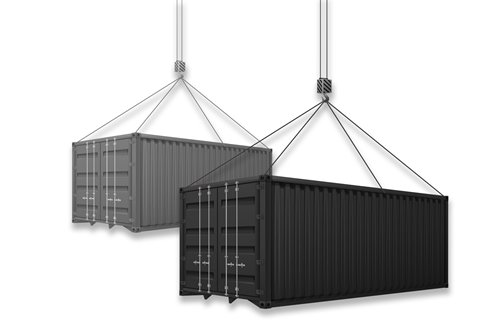HOME >> BUSINESS
African free trade zone creates new opportunities for Chinese companies
By Song Wei Source:Global Times Published: 2019/6/11 20:43:41

Illustration: Luo Xuan/GT
On May 30, the African Continental Free Trade Agreement (AfCFTA) came into effect among 52 of the African Union member states. So far, 23 countries, including South Africa, Egypt, Ghana, Ethiopia, and Kenya, have ratified the agreement. An African free trade zone will greatly enhance Africa's economic growth potential and accelerate its economic restructuring process.
Meanwhile, the AfCFTA has also created new development opportunities for Chinese companies to participate in the China-Africa economic and trade cooperation. Given the development needs and policy support of the African continent to expand regional cooperation, Chinese companies may consider increasing investment in such fields as manufacturing, e-commerce, and transportation infrastructure.
First, Chinese companies can increase their investment in the manufacturing sector in Africa, thus improving their supply capability in goods trade. At present, Africa is still at a disadvantage in the global industrial chain by supplying important raw materials, with its production capacity mainly concentrated in a few countries like Egypt, South Africa, and Nigeria. The free trade zone is meant to build a huge easy-to-reach market, which will further stimulate the vitality of regional industries, especially of the manufacturing sector, thus boosting the employment and economic development. Moreover, the relatively low labor costs, abundant natural resources, convenient transit trade locations, and huge consumption market all will help Africa become a low-cost and resource-intensive manufacturing center. Currently, countries like Kenya, Mauritius, and Ethiopia have already been moving toward this direction. In this sense, Chinese companies may consider investing in Africa's manufacturing sector to increase their industries' added value. In order to give full play to the advantages of Chinese companies and Africa, industries such as steel, cement, flat glass, electrolytic aluminum, basic chemicals, ships, vehicles, and household appliances should be the top priority choice for direct investment, so as to improve the added value of African raw materials and help Africa effectively transform its resource advantages into development advantages, thus promoting the industrialization process in Africa and helping the continent establish a complete industrial system.
Second, Chinese companies can invest in Africa's e-commerce field to promote the construction of service trade platforms. The African free trade zone will be conducive to eliminating tariffs among member states and to facilitating regional trade. The AfCFTA promises to remove tariffs on 90 percent of goods traded between member nations, with the remaining 10 percent of tariffs on sensitive goods to be phased out over time, which will contribute to the formation of a massive African market.
At present, most African countries intend to vigorously develop the e-commerce sector, which is of great importance to promoting the inclusive growth of African countries. Specifically, e-commerce helps integrate the most underdeveloped African countries into the global value chain by reducing the intermediate costs for all trade-related parties. Moreover, e-commerce helps Africa's small and medium-sized companies participate in global trade. E-commerce platforms allow these companies to be directly connected with the Chinese market and other overseas market, making it easier for them to participate in global trade. Furthermore, e-commerce helps reduce the barriers for African women to enter the global market. Since e-commerce reduces the frequency of face-to-face communication, it overcomes the negative factors that curb women's participation. Chinese companies should put more effort into promoting the development of e-commerce in African countries. Using e-commerce to combine traditional trade methods with the internet will greatly enhance the trade capability of African countries. As for e-commerce platform construction, Chinese companies may consider participating in and integrating with local e-commerce platforms.
Third, Chinese companies can actively participate in the construction of connectivity infrastructure to further lower logistics costs. Africa is unlikely to see any rapid development in its industrialization in the short term, because insufficient infrastructure has constrained its industrialization and integration process. The trade costs of inland countries include excessively high transportation costs and unpredictable time. It is estimated that transportation costs account for 14 percent of the export value of African countries, and the figure could be up to 70 percent for some inland countries, compared with only 8.6 percent in developed countries.
In addition, the internet penetration rate in Africa was the lowest in the world, far below the average level of developing countries, leading to weak infrastructure for e-commerce development in the region. In recent years, many African countries have taken infrastructure such as highways, railway, airports, ports, water supply, and power generation as priority areas for revitalizing their economies.
In the past, China has mostly assisted Africa or acted as project contractor or equipment supplier in infrastructure cooperation with the continent. As the African free trade zone is accelerating the integration of African countries, Chinese companies may make use of their years of experience and advantages in communications engineering contracting to increase investment in Africa's infrastructure. Meanwhile, the establishment of the information highway between China and Africa could also be conducive to the launch of the yuan payment and settlement systems in the continent.
The author is an associate research fellow at the Chinese Academy of International Trade and Economic Cooperation under the Ministry of Commerce. bizopinion@globaltimes.com.cn
Posted in: EXPERT ASSESSMENT